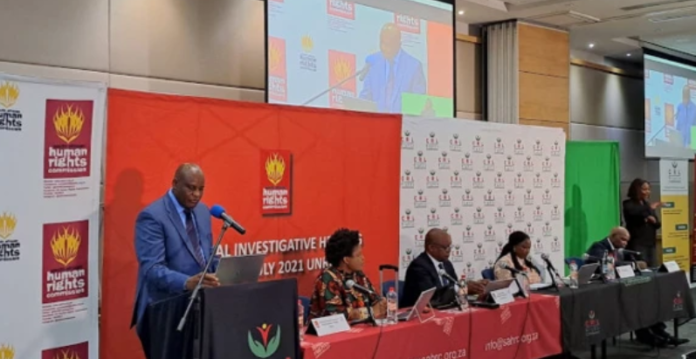The Cultural, Religious, and Linguistic (CRL) Rights Commission has recently released its findings on the deadly Phoenix racial attacks that occurred in 2021 during the July unrest in South Africa.
The commission’s report highlights the role of historical tensions between African and Indian communities as a contributing factor to the violence that unfolded in Phoenix, resulting in the loss of thirty-six lives and the destruction of numerous businesses.
The CRL Rights Commission, in collaboration with the SA Human Rights Commission (SAHRC), conducted investigative hearings in Durban and Gauteng between November 2021 and January 2022.
[ Cape Town Combat Copper Theft As It Recovers Over 53km Of Stolen Cable ]
These hearings aimed to shed light on the events of July 2021 and the violation of people’s rights. The Phoenix attacks were a significant focus of the Durban leg of the hearings.
During its investigation, the CRL Rights Commission engaged with various stakeholders, including community leaders from Phoenix and the surrounding areas, traditional leaders in the province, and the victims of the violent attacks.
The commission’s chairperson, David Mosoma, emphasized the historical relationship between African and Indian communities as a key finding.
Mosoma stated, “We found that there existed a historical relationship between members of the African communities and the Indian communities. The mistrust of the Africans by the Indians allegedly led to the killing of Africans by the Indians, as cited by some members of the community, and this, in their view, has a historical genesis or historical origin in 1949 events.”
This acknowledgment of historical tensions highlights the deep-rooted mistrust and animosity that has persisted between these communities for decades. It is crucial to recognize that these tensions are not isolated incidents but have historical origins that continue to influence present-day interactions.
The CRL Rights Commission further noted that the mistrust between the communities in Phoenix and the surrounding areas has made it challenging for them to coexist peacefully. The pre-existing suspicions and animosities exacerbated the violence during the July unrest in 2021.
Addressing these historical tensions and fostering understanding and reconciliation between African and Indian communities is essential for the long-term peace and stability of the region. It requires a concerted effort from community leaders, government institutions, and civil society organizations to promote dialogue, empathy, and mutual respect.
The CRL Rights Commission’s findings underscore the importance of addressing the underlying causes of inter-community tensions and working towards building a more inclusive and harmonious society.
It is crucial to recognize the impact of historical events on present-day dynamics and to take proactive measures to promote social cohesion.
Efforts should focus on promoting cultural exchange, fostering economic opportunities for all communities, and creating spaces for open and honest dialogue. By addressing the root causes of historical tensions, we can strive towards a future where all communities can coexist peacefully and thrive.
Catch up with the latest news from The Times Post on WhatsApp by following our channel. Click here to join.


